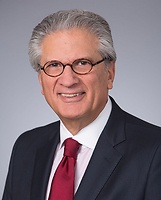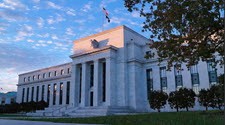International regulators this week urged banks to speed up their transition plans away from the London Inter-bank Offered Rate (LIBOR) to a new standard for setting the price of trillions of dollars of loans and derivatives worldwide. LIBOR is an important reference rate for commercial real estate and the broader economy, underlying approximately $373 trillion worth of cash and derivative contracts globally.
- With LIBOR set to expire at the end of 2021, the status of reform efforts and their impact on commercial real estate finance is profiled by Joseph Forte (Sullivan & Worcester) – a member of The Roundtable's Real Estate Capital Policy Advisory Committee (RECPAC) – in his recent article, "Après LIBOR: Black Swan or Y2K."
- LIBOR's credibility was badly undermined a decade ago by a rate-manipulation scandal. These illegal actions damaged the public's trust in LIBOR, financial markets and institutions.
- The United Kingdom's Financial Conduct Authority (FCA), which regulates LIBOR, announced last year that it will phase out the global borrowing index by 2021. In December 2018, FCA Chief Executive Andrew Bailey said, "There is some good news to report on the important steps taken towards transition. But the pace of that transition is not yet fast enough. There is much further to go." (FCA, "Interest rate benchmark reform: transition to a world without LIBOR")
 |
With LIBOR set to expire at the end of 2021, the status of reform efforts and their impact on commercial real estate finance is profiled in Joseph Forte's recent article, " Après LIBOR: Black Swan or Y2K ." . |
- The Federal Reserve Bank of New York in April began publishing an alternative U.S. benchmark to work alongside LIBOR – the Secured Overnight Financing Rate (SOFR), which is seen as the next step to transition trillions of dollars in securities away from LIBOR. SOFR is seen as more reliable, as it is based on interest rates in the U.S. market for repurchase agreements instead of LIBOR's estimated quotes by bankers in the relatively thin interbank loan market.
- Yesterday, The Wall Street Journal reported that international regulators are urging banks to stop using LIBOR for new contracts and plan to accommodate legacy contracts that are set to expire after LIBOR sunsets at the end of 2021. "Legacy contracts represent arguably the greatest challenge for regulators and industry groups," according to the July 13 article.
- Former President of the Federal Reserve Bank of New York William Dudley spoke about LIBOR in May. "Time is of the essence, and we must manage it well," he told a Bank of England forum. "Because of the great uncertainty over LIBOR's future and the risks to financial stability that would likely accompany a disorderly transition to alternative reference rates, we need aggressive action to move to a more durable and resilient benchmark regime," Dudley added. (Reuters, May 24, 2018)
- The Fed's Alternative Reference Rates Committee (ARRC) will meet on July 19 to address risks in contract language and actions that could minimize disruptions associated with a possible end to LIBOR. See "Alternative Reference Rates Committee Releases Principles for Fallback Contract Language Guiding Principles Mark a Key Milestone in Meeting the ARRC's Mandate" and the ARRC website for additional information.
The Roundtable's RECPAC has formed a LIBOR Working Group to address this challenge and work toward the development and implementation of an effective, new replacement benchmark that does not impair liquidity, needlessly increase borrowing costs or cause market disruptions.

